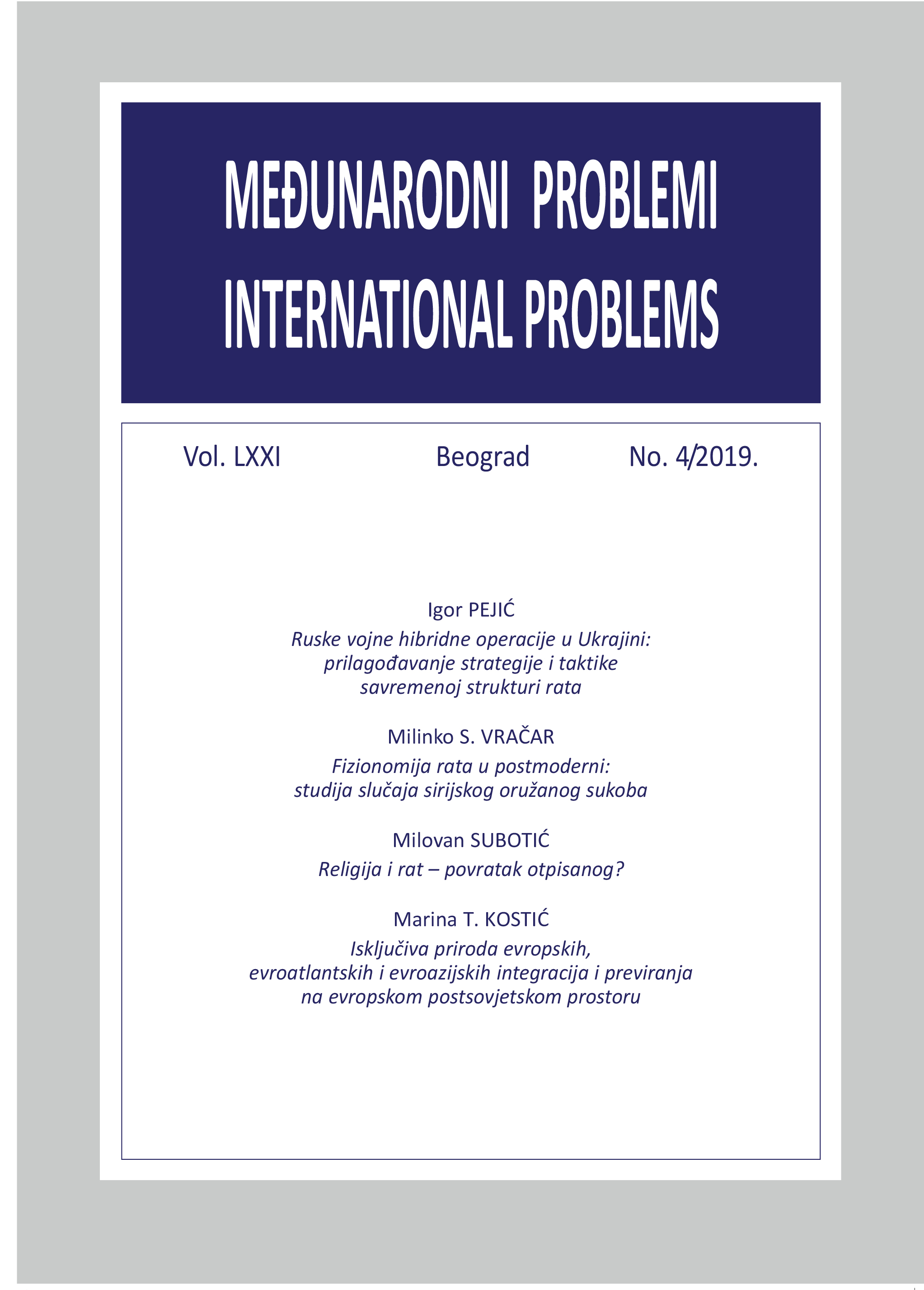Isključiva priroda evropskih, evroatlantskih i evroazijskih integracija i previranja na evropskom postsovjetskom prostoru
Exclusive nature of the European, Euro-Atlantic and Eurasian Integration and Tension in European Post-Soviet Space
Author(s): Marina T. Kostić ŠulejićSubject(s): Politics / Political Sciences
Published by: Институт за међународну политику и привреду
Keywords: Euro-Atlantic integration; Euroasian integration; Post-Soviet space; United States; Russia; European Union
Summary/Abstract: The subject of this paper is to determine the relationship between the European, Euro-Atlantic and Eurasian integration, especially their exclusive character, and the turmoil in the European post-Soviet space. The paper concludes that the exclusive nature of the integration process, which has a value and a geopolitical dimension, encourages the US, EU and Russia conflicts for control over this area and leads to the reopening of ethnic and territorial disputes (solutions for one a deepening of crisis for the other stakeholders), remilitarization and a new arms race, the increased military presence of the USA and Russia in the region and further destabilization of world and European order, especially relationship between USA-Russia-EU. The roots of these integrations are in the end of the Cold War, the disintegration of the Soviet Union and the survival of Western economic and defence organizations that sought and still seek to expand to the post-Soviet space in order to create a universal liberal democratic world order despite Russian dissent. This work thus sheds light on the contradictions of keeping an open door policy of European and Euro-Atlantic integration, which causes the opposite effect in Russia – a sense of closing the door, the new isolation and restraint, creating new divisions in Europe. On the other hand, the contradiction that this analysis reveals is that Russia, while seeking equal treatment and respect for its interests by the West, is in fact expecting respect of its inequality compared to other European post-Soviet republics, de facto recognition of its right of veto to the post-Soviet republics integration and its special role in this region, which practically further bolster fears that these countries will be returned to the Russian sphere of influence, or even a new Russian state. Of the several variables left as a result of the breakup of the Soviet Union and which affect the foreign policies of the post-Soviet states question of the type of integration becomes crucial because its defence, geopolitical, economic and wider social effects.
Journal: Међународни проблеми
- Issue Year: LXXI/2019
- Issue No: 4
- Page Range: 498-526
- Page Count: 29
- Language: Serbian

